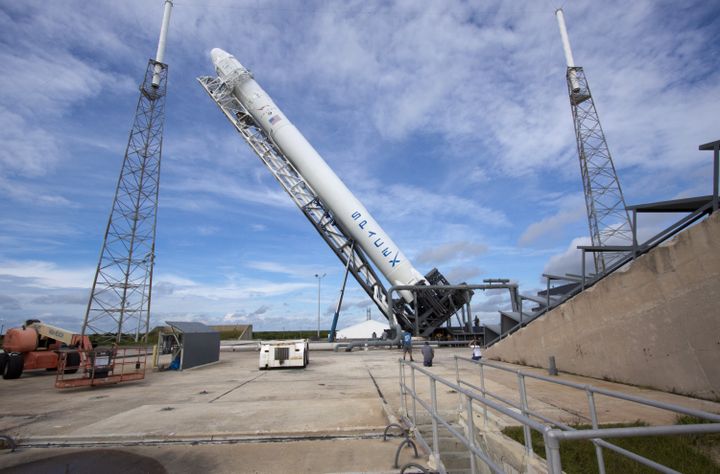
It's been a hard year for cargo vehicles to space -- three of them didn't make it to the International Space Station as planned, including one problem just a few weeks ago. Two rockets exploded spectacularly during launch, while the third lost its way after making it into orbit. What's more, they were three independent systems -- Orbital Sciences' Antares rocket, Russia's Progress vehicle and SpaceX's Falcon 9 rocket (with a Dragon on top).
Many in the media are calling this a crisis. The astronauts depend on these supply ships not only for food, but also for repair items (like toilet parts) or things to get their work done (such as experiments and spacesuit parts). But counteracting these voices of worry is Destin Sandlin, the creator of the YouTube series "Smarter Every Day."
As of at least 2014, Sandlin is a missile flight test engineer for Redstone Test Center, which is on a military base near Huntsville, Alabama, according to the Redstone Rocket. This gives him a unique perspective on the problem, he says, because he is used to launching things and experiencing failures. While not belying the seriousness of the situation, Sandlin says the bad news can actually be a good thing.
He points out that NASA has a dedicated inventory and stowage officer who sits in Mission Control in Houston and figures out exactly how many supplies are on the station. Initially, Sandlin said, there was a 60-day buffer for food after the next cargo ship. But when the rockets began going awry, NASA found a way to safely compress that buffer to 45 days. And much as the system is being stressed, no one is in danger of running out of food, especially because there are only three astronauts on station right now instead of the full complement of six.
"The fact that we've lost three vehicles pretty much in a row, and we still have plenty of supplies on the space station, speaks to how awesome these engineers and mission planners are," Sandlin said.
What's more, Sandlin said that the reliability of the system is overall very impressive. A typical wifi connection, especially averaged among the billions of available connections all over the world, is unreliable; most of us are used to having our Internet go out at least a few times a year. The fact that many rockets safely heft spacecraft to orbit with International Space Station supplies on board is technologically impressive, he said.
In terms of improving reliability, Sandlin added, this series of problems will improve human spaceflight. SpaceX is preparing to send humans aloft on similar systems around 2017, for example, but the Dragon spacecraft and its Falcon 9 rocket will be more robust. There will be backup systems, there will be an escape system, and there will of course be life support systems on board. According to Sandlin, finding the failures in these cargo systems will prevent a problem from appearing on the human side, one that could be masked.
Be sure to watch the entire video above to see a few souvenirs of the Apollo program, and also to hear some words of wisdom from famed rocket engineer Wernher Von Braun. Do you have a good idea to improve rocket reliability? Tell us about it in a HeroX challenge.
Top image: SpaceX's Falcon 9 rocket being erected on the launch pad. Credit: NASA








